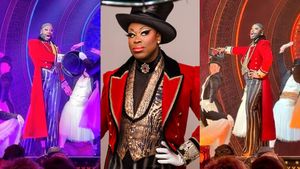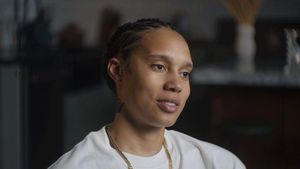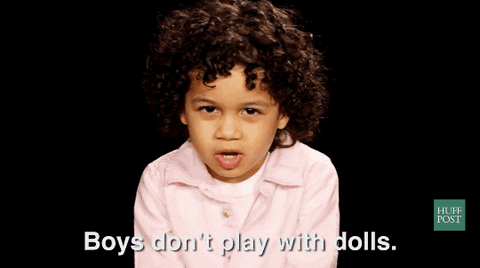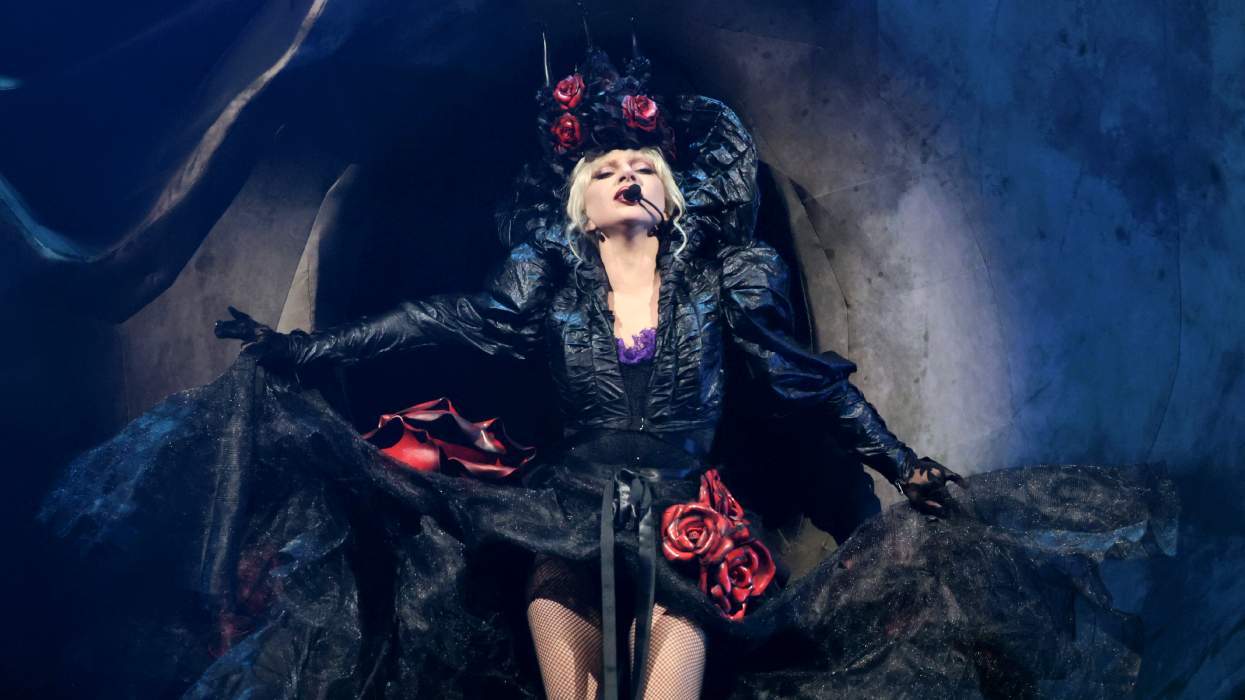When I think about gender identity—well, my first thought is usually about how weird gender is—but, I’m also thrilled with how complex and limitless it can be. Our gender is the gender we are (which can align with the gender they were assigned at birth or not), but our gender identity is why we are the gender we are, and how we make sense of the highly gendered world around us. Sometimes we can articulate those reasons, and sometimes the only explanation we have is a deep-in-our-gut feeling that something is right for us, that we fit in one category and not another.
While gender identity is usually reduced to how you identify (cis man, cis woman, trans man, trans woman, genderqueer, gender fluid, agender, etc.), I think it’s much more interesting to look at the why than the what. In general, cisgender people don’t spend a lot of time thinking about gender identity, but self-awareness and self-reflection can help all of us live happier lives. Here are five reasons cisgender people should explore their gender identity:
1) Exploring your gender identity gives you permission to try things you were discouraged from before.
Because gender has been social constructed to (near) death, we all get stuck with these weird, arbitrary categories of “boy things” and “girl things.” “Girl things” include dolls, dresses, makeup, cooking, knitting, empathy, expressing emotion, and being polite. “Boy things” include trucks, athleticism, stoicism, manual labor, hard math and science, and terrible cargo shorts. Depending on what gender you’re assigned at birth, parents, teachers, television shows, advertising, peers, bosses, and mentors have probably encouraged you to fit neatly into one category of arbitrary interests and personality traits, while doing everything possible to stamp out any wandering curiosity in the other category.
Very few people enjoy a smooth drive down their binary gender lane because people aren’t one-dimensional. Exploring your gender identity—even if you are relatively comfortable with the gender you were assigned at birth—gives you the opportunity to drive down a different street for awhile and see if you like the view. Why should we live our entire lives missing out on things we’re drawn to or might enjoy because they don’t fit in with what our gender is stereotypically suppose to like?
2) Exploring your gender identity can deepen your connection to your history and culture.
Gender is culturally relative. Depending on the time and place you were born, your ethnicity or race, and how your ancestors viewed gender, what it means to be a man, a woman, neither, both, or something in between can mean something completely different for you than for the person sitting next to you on the train.
Talking to older relatives, reading about how your ancestors historically viewed and treated different genders, and comparing your history to others can give you a better sense of what's shaped how you live and who you are.
3) It can open the door to playing with gender expression.
[iframe https://giphy.com/embed/YlEMMJMwAeaPK allowfullscreen="" class=^{{"giphy-embed"}}^ frameborder="0" height="572" width="750"]
As someone who is relatively gender nonconforming, I didn’t start playing with my gender expression until I started exploring my gender identity. I didn’t dip into the “men’s” section at clothing stores. I wore my hair acceptably long. I shaved my armpits and legs every day (oh, the minutes of my life I lost for something that doesn’t even make me feel more comfortable).
Not every cisgender person who explores their gender identity will feel the need to explore their gender expression outside the binary “norm,” but it can be a lot of fun to try out new things and see what you actually prefer rather than sticking to what you were told you should prefer.
4) It will deepen your respect and empathy for the many genders that exist and the endless possibilities for gender.
If you do decide to explore your own gender identity you will hit a point where you’ve taken in so much information about social constructs, gender roles, and philosophical questions about whether or not gender would even exist in a bubble, that you’ll scream internally, “What is real?”
That internal screaming might last awhile, especially if you started your gender exploration with Judith Butler instead of something a little more approachable like My Gender Workbook by Kate Bornstein, but at some point, the screaming will stop. Something wonderful will click in your head. “Everything is real.”
Exploring all of these possibilities for gender will deepen your respect and empathy for every gender—those that fall inside and outside the boxes that we’ve created. Beyond realizing that every gender is real and valid, you’ll realize that there are limitless possibilities for genders and gender expression. That’s when things get fun.
5) Exploring your gender identity will help you live a more authentic life.
[iframe https://giphy.com/embed/3xqB3wmHXHFwA allowfullscreen="" class=^{{"giphy-embed"}}^ frameborder="0" height="422" width="750"]
Whether your gender journey leaves you confident that you are indeed the gender you were assigned at birth, or it takes you on a longer, winding road, exploring your gender identity will help you live a happier, more authentic life.
Beyond exploring new interests and playing with gender expression, you’ll deepen your understanding of the role gender plays in our society and our lives, and you’ll leave yourself open to new possibilities. Feeling empowered to make choices that reflect who you are rather than who you’re supposed to be is an incredibly freeing thing.




































































 Strike A Pose Mic Drop GIF by FILMRISE - Find & Share on GIPHY
Strike A Pose Mic Drop GIF by FILMRISE - Find & Share on GIPHY Schitts Creek No GIF by CBC - Find & Share on GIPHY
Schitts Creek No GIF by CBC - Find & Share on GIPHY






